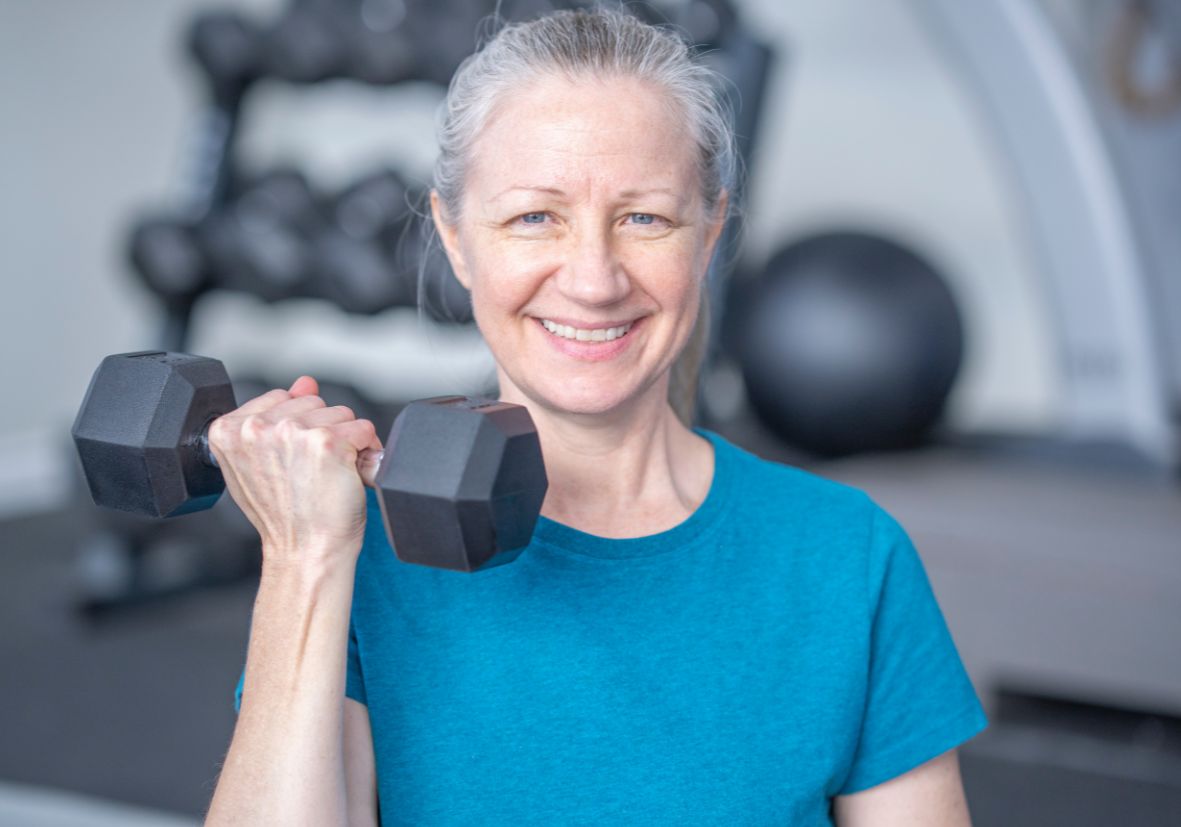
Exercise during menopause plays a crucial role in managing the hormonal and physical changes that affect your bones, muscles, heart, and metabolism. The right kind of movement can help you thrive—not just survive—through menopause and beyond.
Whether you’re already active or just getting started, this guide will help you make informed, confident decisions about what exercise is right for you.
🌟 Benefits of Exercise During Menopause
Movement during menopause offers more than just physical strength. In fact, regular exercise can:
✅ Reduces the risk of osteoporosis and fractures
✅ Improves cardiorespiratory function and lowers risk of heart disease
✅ Helps manage weight and body composition
✅ Enhances mood and lowers stress and anxiety
✅ Improves sleep quality
✅ Reduces pain and injury risk
✅ May decrease the severity and frequency of hot flushes
🦴 Bone Health After Menopause
Bone mineral density can decline by up to 20% in the 5–7 years following menopause. This is largely due to the reduction in estrogen, which plays a key role in maintaining bone strength. As a result, the risk of osteoporosis and fractures rises.
What helps?
- Regular strength training can increase bone density by around 1% per year in postmenopausal women.
- While swimming and cycling are great for cardiovascular health, they don’t stress the bones enough. In contrast, weight-bearing exercises—like walking, running, dancing, Pilates, and ball sports—help maintain bone density by applying healthy stress to the skeleton.
- Plyometric exercises—such as step-ups, hopping, bounding, skipping, or squat jumps—also strengthen bones and improve balance and heart health.
- To stimulate new bone cell growth, exercises should be challenging and performed to fatigue, such as using heavier weights.
💪 Muscle Strength & Power
Beginning in your 30s, lean muscle mass naturally decreases by about 3% per decade. Strength loss can accelerate with age, dropping by as much as 30% between ages 50 and 70. During and after menopause, the muscle fibres responsible for power and speed are especially affected.
What helps?
- Aim for strength training 2–3 times per week, focusing on challenging the muscles until they’re fatigued.
- In addition, strengthening your core, back, and shoulders can enhance posture and mobility.
- Supporting the glutes and hips also improves stability, balance, and helps prevent injury.
❤️ Cardiovascular Health & Metabolism
Estrogen offers a protective effect on the heart and blood vessels. However, after menopause, the risk of high blood pressure, heart disease, stroke, and type 2 diabetes significantly increases. On top of that, the body’s natural cooling mechanisms become less efficient, making it harder to regulate temperature during activity.
What helps?
- Cardiovascular exercise improves aerobic capacity and boosts insulin sensitivity (helps to prevent the development of type 2 diabetes). It also supports weight management.
- High-intensity interval training (HIIT)—short bursts of high effort alternated with rest—can be especially effective. For example:
- Fast-paced walking or running intervals
- Stationary bike sprints
- Bodyweight circuits (like squats, push-ups, and mountain climbers)
- To stay comfortable during workouts, try using cooling strategies like cold drinks, cooling towels, or breathable clothing. Don’t forget to stay hydrated before, during, and after exercise.
🌈 Final Thoughts on Exercise during Menopause
Menopause shouldn’t mean slowing down. In fact, it’s the perfect time to move with purpose and power. A well-rounded routine focused on strength, bone loading, and cardiovascular conditioning can help you stay active, confident, and resilient in the years ahead.
If you’re not sure where to begin, our physiotherapy team can create a tailored plan based on your body, your goals, and your current fitness level.
Contact Us ☎️ – If you would like to book an appointment with one of our physiotherapists to create a plan to support your bone density health—we’d love to help. 📞 Call us on (03)88284761 or BOOK HERE to schedule your physiotherapy assessment.
